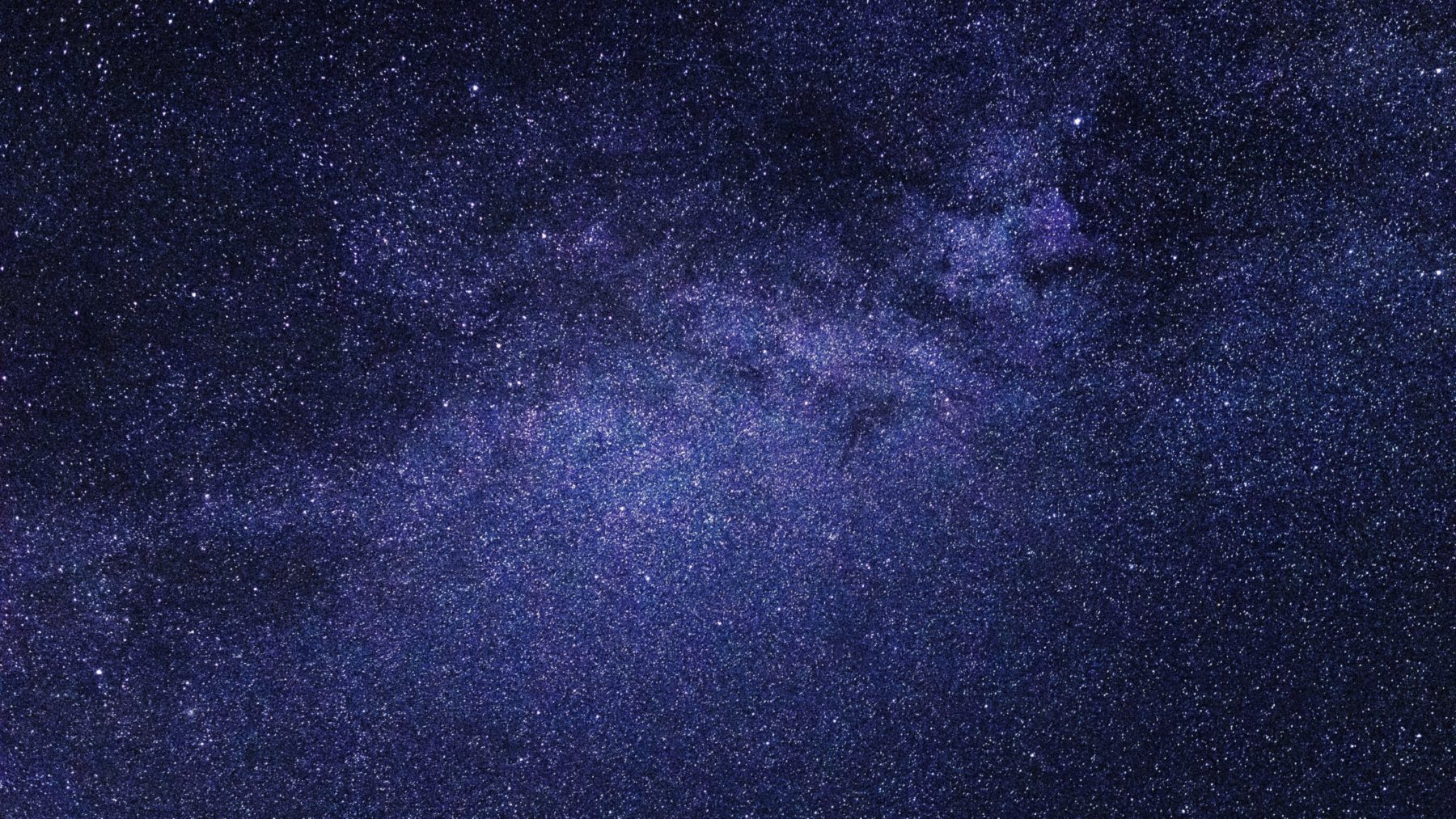
Our species’ survival is dependent on our ability to ‘boldly go where no man has gone before,’ according to some. Not only could space colonization be the answer to the impending doom of our species, but it is also often linked to some sort of future utopia. Arguably, space colonization holds the answer to everything. Or at least, that’s how it is often marketed.
Our species’ survival is dependent on our ability to ‘boldly go where no man has gone before,’ according to some. Not only could space colonization be the answer to the impending doom of our species, but it is also often linked to some sort of future utopia. Arguably, space colonization holds the answer to everything. Or at least, that’s how it is often marketed.

Franchises like Star Trek (which began airing during the Cold War era) popularized the idea of space colonization. Space is sometimes deemed to be ‘the final frontier,’ a phrase often used in the franchise which chronicles the lives of several starships’ crews who go ‘where no man has gone before.’ It is unlikely we will see a United Federation of Planets, like in Star Trek, in our lifetime, but space colonization is not as far away as it might seem. In fact it has already begun. Examples of space colonization include the emergence of space tourism and the International Space Station (ISS), a habitable satellite circling the Earth. Even though we are only in the early stages of space colonization, a space station like the ISS is already of appreciable size and, being the largest man-made object in space, even visible from Earth. In fact, there is an app that sends you notifications when the ISS is visible from where you are.
So why would we colonize space? Cozmuta (2015), who works at NASA, says we should ‘look beyond our world of origin to understand our future.’ Like many, she believes space colonization holds the answers to a lot of our problems. Space colonization is often described as the next giant leap for humanity, and a necessary one at that. Earth will not remain habitable forever – in fact it is certain to become uninhabitable in the next billion years or so. That doesn’t mean our species’ apocalypse is also a billion years away. The chances of humans living to see another billion years seem ridiculously low, not in the least because of how we treat each other and the planet we inhabit. All in all, space colonization is often deemed necessary, the idea being that staying on a single planet means we are essentially doomed.
“The chances of our species’ survival will fall rather than rise if we colonize space”
Thus, a compelling argument can be made for venturing into the skies. Several private corporations, such as SpaceX for example, are looking into setting up shop on Mars in the next few decades to ‘save humanity.’ Russia aims to establish a lunar outpost by 2030 (The Week, 2018). People like Elon Musk appear to be in a rush to colonize space and he is not alone in arguing that there is a real urgency to do so. It is striking, however, that we look for answers in the skies to save humanity instead of taking the time to self-reflect. In fact, Torres (2018a), a scholar specializing in existential risk, argues that the chances of our species’ survival will fall rather than rise if we colonize space.
According to Torres, we live in a Darwinian world in which ‘the mechanism of natural selection is constantly tweaking the genomes of organisms to ensure a satisfactorily good “fit” between the “features” of organisms and the “factors” of their environments’ (Torres, 2018b). Species that migrate to a new island will evolve into a novel species (Torres, 2018a). Inhabitable planets are essentially islands in the sky that could potentially result in the evolution of species different from the parent human species. Additionally, the possibilities that come with eventual future advances in bioengineering may speed up the evolution process. Different modifications may be made to our bodies and brains across planets depending on what enhancements are needed to adapt to the environment.
Although private corporations like SpaceX are already trying to establish human settlements on Mars, Cozmuta (2015) estimates that it will take two to three hundred years before we are able to set up fully fledged colonies outside the bounds of Earth. According to anthropologist Cameron Smith, it will take another two to three hundred years before we start to see ideological diversification (The Week, 2018). Due to isolation, space colonies may develop vastly different cultures and languages. Even digital communication would prove to be difficult with signals potentially taking years, if not decades, to arrive (Torres, 2018a). Thus, not only would colonizing space result in the diversification of our species, difficulties arising from problems in communication could lead to ideological diversification as well. Ideological diversification includes the emergence of ‘cultures, languages, governments, political institutions, religions, technologies, rituals, norms, worldviews’ that may be unique to certain space colonies (Torres, 2018a). Prior to that, however, it is also interesting to think that already, over the course of some generations, space colonies may want to sever their connections to Earth because they have different interests than Earth does. A potential conflict of interests could even concern relatively minor matters like disagreements on taxes. We’ve already seen a similar situation happen here on Earth when the United States, previously a colony of Great Britain, declared independence because they wanted more economic independence and rejected the idea of ‘taxation without representation’ (Phillips Erb, 2017).
“Due to isolation, space colonies may develop vastly different cultures and languages”
Decolonization of space colonies could result in highly competitive interplanetary relations. It would be virtually impossible to set up an interplanetary agency like the United Federation of Planets in Star Trek. The enormity of space would make effective coordination of law enforcement activities incredibly hard (Torres, 2018a). It would also be difficult to establish law and order by adopting a mutually assured destruction policy. Such a policy might be successful if there were only a few colonized planets. Essentially, we’d be looking at an an interplanetary Cold War here, which is ironic if you consider the fact the Space Race started in an Earth-based Cold War. However, given the immensely high number of potential species, a mutually assured destruction policy may not work either, because it would be extremely hard to detect who instigated an attack.
Torres (2018a, 2018b) bases his argument on evolutionary biology and international relations theory, but another argument can potentially be drawn from psychological theory. Think of social identity theory, for example. According to this theory, in-group members often differentiate themselves by using relevant out-groups as a means for evaluating the in-group as positively different (Tajfel & Turner, 1979). It is interesting to speculate whether the theory would also generalize to interspecies relations. It is conceivable that it would. In the case of highly competitive intergroup relations, individuals are likely to devaluate the out-group. We might even see dehumanization, although that term specifically seems a bit odd to use in the case of the emergence of novel species. Potentially, the inability to understand the ‘Other’ due to species diversification may even amplify ‘dehumanization’ of the out-group. Then, what those who dared to dream have optimistically called the ‘final frontier,’ may just turn into another frontier for war.
All in all, I think this shows that we should not uncritically go along with the idea that to understand our future we should go beyond our world of origin. Instead of looking beyond our planet, we should try to look at what’s actually happening on Earth. If we spread out across the universe, we must ensure that we do not bring our worst vices to the rest of the universe with us. Cozmuta (2015) says that space colonization will essentially make us citizens of the galaxy. Although she sets out to paint a realistic picture of how venturing into the heavens may help us, the result is a rather idealistic one. Personally, I’d love to see human colonies on the Moon and Mars become a reality in my lifetime, so I would rather forget about the potentially negative impact venturing into space would have. It is beautiful to think that as citizens of the universe we are all connected. With the immense vastness of the universe, however, comes a threatening diversifying evolution that does not diminish differences but only amplifies them. Thus, it is likely that space colonization may not lead to the utopian future that people like Elon Musk have promised us. Instead, we might end up with a dystopia warranting no guarantee that humanity as we know it will make it out alive. <<
References
– Cozmuta, I. (2015). Look beyond our world of origin to understand our future [Video]. Retrieved April 23, 2019 from https://www.youtube.com/watch?v=KlsGhC3G1d8/.
– Phillips Erb, K. (2017). No Taxation Without Representation And Other Reasons America Declared Independence. Forbes. Retrieved April 24, 2019 from: https://www.forbes.com/sites/kellyphillipserb/2017/07/04/no-taxation-without-representation-and-other-reasons-america-declared-independence/.
– Tajfel, H., & Turner, J.C. (1979). An Integrative Theory of Intergroup Conflict. In W.G. Austin & S.Worchel (Eds.), The social psychology of intergroup relations (pp.33-47). Monterey, CA: Brooks &
Cole.
– The Week (2018). The colonization of space. The Week. Retrieved April 23, 2019 from https://theweek.com/articles/808840/colonization-space/.
– Torres, P. (2018). Why We Should Think Twice About Colonizing Space. Nautilus. Retrieved Apr 23, 2019 from http://nautil.us/blog/why-we-should-think-twice-about-colonizing-space/.
– Torres, P. (2018). Space colonization and suffering risks: Reassessing the “maxipok rule”. Futures, 100, 74-85.
Franchises like Star Trek (which began airing during the Cold War era) popularized the idea of space colonization. Space is sometimes deemed to be ‘the final frontier,’ a phrase often used in the franchise which chronicles the lives of several starships’ crews who go ‘where no man has gone before.’ It is unlikely we will see a United Federation of Planets, like in Star Trek, in our lifetime, but space colonization is not as far away as it might seem. In fact it has already begun. Examples of space colonization include the emergence of space tourism and the International Space Station (ISS), a habitable satellite circling the Earth. Even though we are only in the early stages of space colonization, a space station like the ISS is already of appreciable size and, being the largest man-made object in space, even visible from Earth. In fact, there is an app that sends you notifications when the ISS is visible from where you are.
So why would we colonize space? Cozmuta (2015), who works at NASA, says we should ‘look beyond our world of origin to understand our future.’ Like many, she believes space colonization holds the answers to a lot of our problems. Space colonization is often described as the next giant leap for humanity, and a necessary one at that. Earth will not remain habitable forever – in fact it is certain to become uninhabitable in the next billion years or so. That doesn’t mean our species’ apocalypse is also a billion years away. The chances of humans living to see another billion years seem ridiculously low, not in the least because of how we treat each other and the planet we inhabit. All in all, space colonization is often deemed necessary, the idea being that staying on a single planet means we are essentially doomed.
“The chances of our species’ survival will fall rather than rise if we colonize space”
Thus, a compelling argument can be made for venturing into the skies. Several private corporations, such as SpaceX for example, are looking into setting up shop on Mars in the next few decades to ‘save humanity.’ Russia aims to establish a lunar outpost by 2030 (The Week, 2018). People like Elon Musk appear to be in a rush to colonize space and he is not alone in arguing that there is a real urgency to do so. It is striking, however, that we look for answers in the skies to save humanity instead of taking the time to self-reflect. In fact, Torres (2018a), a scholar specializing in existential risk, argues that the chances of our species’ survival will fall rather than rise if we colonize space.
According to Torres, we live in a Darwinian world in which ‘the mechanism of natural selection is constantly tweaking the genomes of organisms to ensure a satisfactorily good “fit” between the “features” of organisms and the “factors” of their environments’ (Torres, 2018b). Species that migrate to a new island will evolve into a novel species (Torres, 2018a). Inhabitable planets are essentially islands in the sky that could potentially result in the evolution of species different from the parent human species. Additionally, the possibilities that come with eventual future advances in bioengineering may speed up the evolution process. Different modifications may be made to our bodies and brains across planets depending on what enhancements are needed to adapt to the environment.
Although private corporations like SpaceX are already trying to establish human settlements on Mars, Cozmuta (2015) estimates that it will take two to three hundred years before we are able to set up fully fledged colonies outside the bounds of Earth. According to anthropologist Cameron Smith, it will take another two to three hundred years before we start to see ideological diversification (The Week, 2018). Due to isolation, space colonies may develop vastly different cultures and languages. Even digital communication would prove to be difficult with signals potentially taking years, if not decades, to arrive (Torres, 2018a). Thus, not only would colonizing space result in the diversification of our species, difficulties arising from problems in communication could lead to ideological diversification as well. Ideological diversification includes the emergence of ‘cultures, languages, governments, political institutions, religions, technologies, rituals, norms, worldviews’ that may be unique to certain space colonies (Torres, 2018a). Prior to that, however, it is also interesting to think that already, over the course of some generations, space colonies may want to sever their connections to Earth because they have different interests than Earth does. A potential conflict of interests could even concern relatively minor matters like disagreements on taxes. We’ve already seen a similar situation happen here on Earth when the United States, previously a colony of Great Britain, declared independence because they wanted more economic independence and rejected the idea of ‘taxation without representation’ (Phillips Erb, 2017).
“Due to isolation, space colonies may develop vastly different cultures and languages”
Decolonization of space colonies could result in highly competitive interplanetary relations. It would be virtually impossible to set up an interplanetary agency like the United Federation of Planets in Star Trek. The enormity of space would make effective coordination of law enforcement activities incredibly hard (Torres, 2018a). It would also be difficult to establish law and order by adopting a mutually assured destruction policy. Such a policy might be successful if there were only a few colonized planets. Essentially, we’d be looking at an an interplanetary Cold War here, which is ironic if you consider the fact the Space Race started in an Earth-based Cold War. However, given the immensely high number of potential species, a mutually assured destruction policy may not work either, because it would be extremely hard to detect who instigated an attack.
Torres (2018a, 2018b) bases his argument on evolutionary biology and international relations theory, but another argument can potentially be drawn from psychological theory. Think of social identity theory, for example. According to this theory, in-group members often differentiate themselves by using relevant out-groups as a means for evaluating the in-group as positively different (Tajfel & Turner, 1979). It is interesting to speculate whether the theory would also generalize to interspecies relations. It is conceivable that it would. In the case of highly competitive intergroup relations, individuals are likely to devaluate the out-group. We might even see dehumanization, although that term specifically seems a bit odd to use in the case of the emergence of novel species. Potentially, the inability to understand the ‘Other’ due to species diversification may even amplify ‘dehumanization’ of the out-group. Then, what those who dared to dream have optimistically called the ‘final frontier,’ may just turn into another frontier for war.
All in all, I think this shows that we should not uncritically go along with the idea that to understand our future we should go beyond our world of origin. Instead of looking beyond our planet, we should try to look at what’s actually happening on Earth. If we spread out across the universe, we must ensure that we do not bring our worst vices to the rest of the universe with us. Cozmuta (2015) says that space colonization will essentially make us citizens of the galaxy. Although she sets out to paint a realistic picture of how venturing into the heavens may help us, the result is a rather idealistic one. Personally, I’d love to see human colonies on the Moon and Mars become a reality in my lifetime, so I would rather forget about the potentially negative impact venturing into space would have. It is beautiful to think that as citizens of the universe we are all connected. With the immense vastness of the universe, however, comes a threatening diversifying evolution that does not diminish differences but only amplifies them. Thus, it is likely that space colonization may not lead to the utopian future that people like Elon Musk have promised us. Instead, we might end up with a dystopia warranting no guarantee that humanity as we know it will make it out alive. <<



